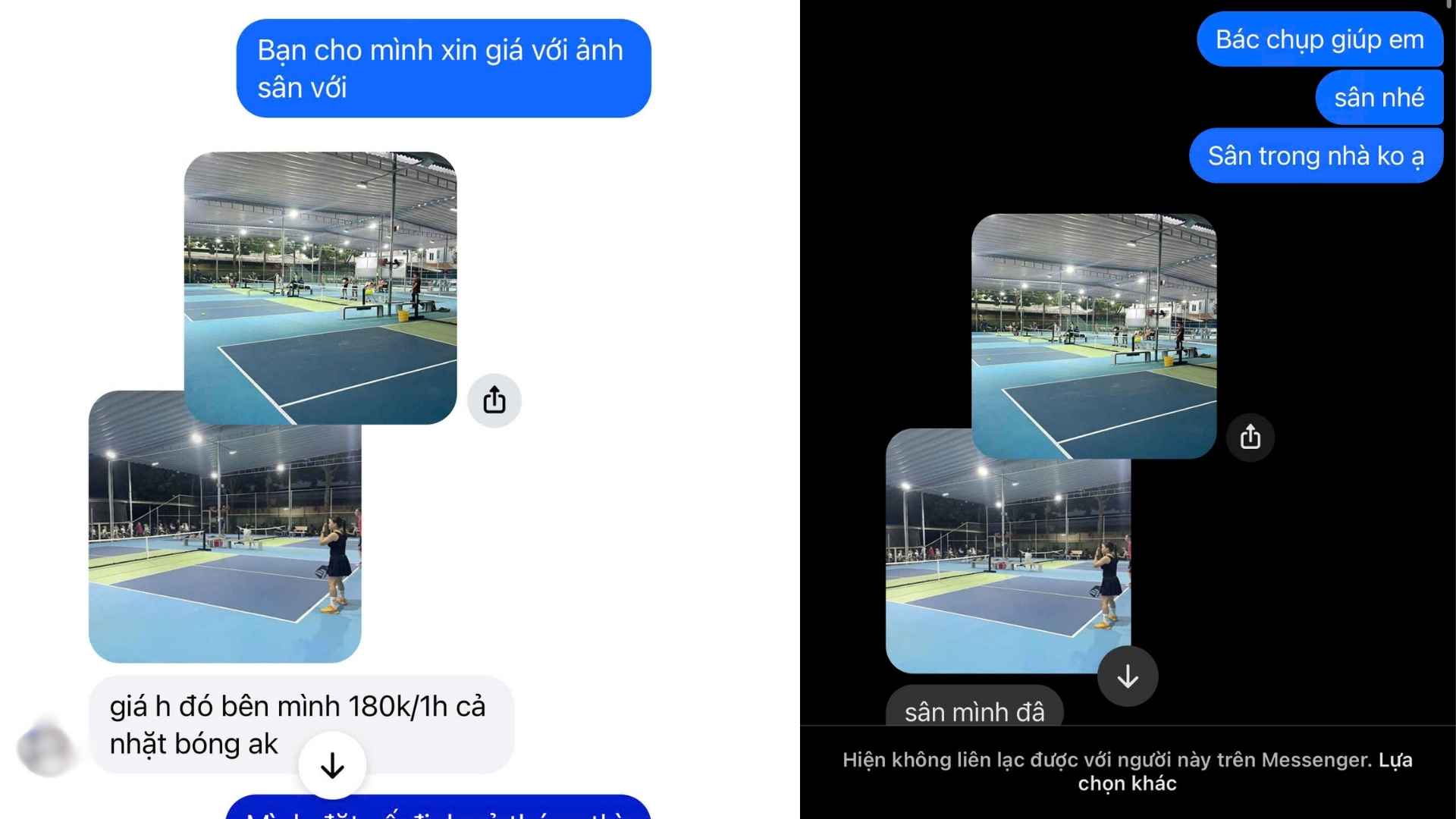Hoang carried because of impersonation
Recently, there have been many subjects impersonating course owners or pickleball court managers to defraud depositors of course tenants. Although the amount of money is not large, this behavior has a significant impact on players and reputable business owners.
Posing as a person looking to rent a court, the reporter posted on pickleball groups and was quickly friends with a Facebook account named N.H. When expressing his need to rent a court in the old Cau Giay district, the subject introduced the court on Hoang Quoc Viet street. However, when asked to send a photo, this person provided an image that matched a previous fraudulent "exposure" post (photo of the pickleball court in the scam on Hoang Hoa Tham Street).

Realizing unusual signs, the reporter contacted Mr. V.T.T - the owner of the pickleball court cluster on Hoang Quoc Viet Street and was confirmed that the image was not his court.
Mr. V.T.T said that recently he has continuously received feedback about customers being scammed out of deposits when booking a court for rent. Recently alone, I have encountered 4 cases of people coming directly to the stadium to ask questions after transferring a deposit of 200,000 - 300,000 VND, then having their contact blocked. Although there was no economic damage, this still caused me many inconveniences. Moreover, no one wants their own stadium name to be scammed, said Mr. T.
According to Mr. T, in recent days, many customers have been more vigilant and proactively called to confirmation via his phone number made public on the Alobo platform - a sports field management application, including a pickleball court. This has helped many customers avoid scammers.
Criminal proceedings may be imposed for the act of defrauding depositors for pickleball courts
According to lawyer Dang Van Cuong - Hanoi Bar Association, online fraud methods and tricks are increasingly sophisticated and constantly changing according to the needs and development of society. When the sport of Pickleball is chosen by many people, civil relations related to this sport will take place more and more. Therefore, scammers also take advantage of this opportunity to commit fraudulent acts to appropriate property.
Lawyer Cuong said that if a thief does not have a yard or is not authorized by the yard owner but still pretends to have a yard for rent, asks customers to deposit and then appropriate money, it is an act of fraud to appropriate property.

Regarding the regulation on punishing this behavior, lawyer Dang Van Cuong said that a person who uses deceitful tricks, gives fabricated and unreal information to receive money from others from VND 5,000,000 or less than VND 5,000,000 but has been administratively sanctioned, has not had his sentence cleared but continues to violate or negatively affect the security, order and social safety ... will be criminally prosecuted for the crime of fraud and appropriation of property. The lowest penalty is non-custodial reform for up to 03 years or imprisonment from 06 months to 20 years or life imprisonment.
"In the case of scammers who appropriated deposits from pickleball players with an amount of only a few hundred thousand dong but appropriated from many people, the behavior was determined to have a negative impact on security, social order and safety. Even if the amount of money appropriated is less than VND 5,000,000, the scammer can still be prosecuted for the crime of fraud and appropriation of property," said lawyer Dang Van Cuong.
Lawyer Dang Van Cuong also warned that electronic transactions and indirect transactions in cyberspace are very likely to lead to fraud. Therefore, every citizen when conducting transactions to buy, sell, and deposit on the internet needs to carefully research the information of the service provider, before depositing money, they need to have complete and accurate information to avoid being scammed.
When in doubt, you should call to discuss or come directly to check, especially for large deposits or transactions. Avoid transferring money when the information is incomplete, inaccurate or the transaction is not authenticated.










